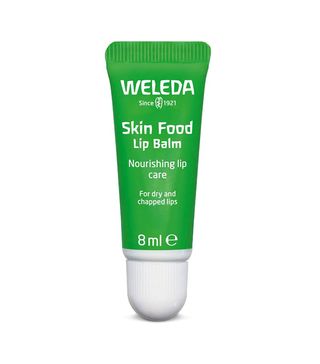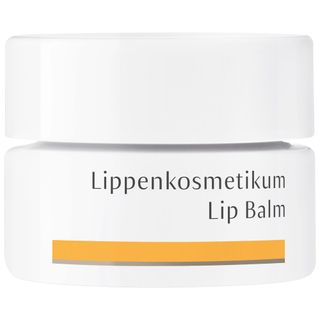How to Cure Dry, Cracked Lips, According to Someone Who Really Knows
While the colder months definitely come with their advantages (I am so ready for cosy nights in, wrapped up in a blanket), for many of us, the sudden drop in temperatures can also prove troublesome, especially when it comes to our beauty routines—most notably, our lips. Personally, I am not someone who suffers with dry skin. If anything, the cold winter climes give my oily, spot-prone skin a bit of a break. The state of my lips, however, paints a totally different picture.
For as long as I can remember, I have suffered with dry, irritable lips that are prone to cracking and general discomfort. For many years, I simply put up with it. I spent the winter months working my way through countless lip balms that gave only very temporary results and avoided lipstick like the plague, in fear it would worsen the situation.
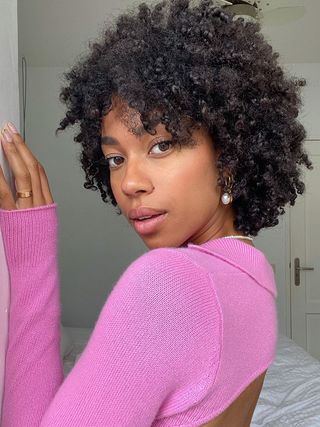
But a few years ago, I decided that enough was enough. After speaking to countless skin experts through work, I realised that, actually, things don’t have to be so terrible. In a bid to educate myself and get my lips in a better state, I reached out to a number of different experts. Since then, I have worked out exactly what works (and what doesn’t) when it comes to caring for my dry lips, and I can now safely say that my lips are the healthiest they have ever looked. Keep scrolling to discover the tips and tricks that I've found work best.
Prepare for Winter

Something I learned over the years is that while the sun does have potential to burn lips, traditionally, it's the cold, dry winter months that make things a whole lot worse. "The lining covering the lips is very thin, soft, and delicate, providing less protection than other places. They need moisture, making windy weather and central heating the primary culprits for lip dryness,” says Kristina Semkova, MD, consultant dermatologist at the Cadogan Clinic. So instead of waiting for the irritation to set in, I try and get ahead of it by giving my lips all of the moisture they need by making sure I balm them first thing in the morning and last thing at night.
Licking Them Only Makes Things Worse

This is a lesson that I very much learned the hard way. Whenever lips turn dry, the temptation to lick them can become overwhelming. However, it turns out doing so causes a lot more harm than good. Semkova explains, "Licking is the worst enemy of healthy lips in the winter. People often lick their lips when dry, but the saliva irritates and dehydrates the lip further. Then, you get into a vicious cycle of licking the lips to improve them but actually causing more dryness and irritation.”
Masks Don’t Help the Situation

As wearing masks becomes ingrained in our everyday lives, it’s important to know the side effects they have on our skin. While maskne (that’s mask-induced acne, FYI) is a hot topic of conversation amongst experts and editors at the moment, the effect of mask wearing on our lips is less talked about. "Anything that touches the lips too much can cause irritation and promote dryness,” warns Semkova. The answer? Before putting your mask on, be sure to apply a barrier over the lips to protect the skin. Something like Vaseline should work a treat.
The Balm Has All the Power
I know it seems obvious, but seriously, lip balm is, by far, the most important aspect of caring for dry lips. I’ve tried scrubs, masks, oils, and ointments, but at the end of the day, making the right lip balm choice is the most important thing. "Choose basic lipcare products without strong fragrances or flavouring. Basic lip balms that contain petrolatum and/or a combination of waxes not only help with the healing of the skin but also create a protective barrier to keep moisture in and protect from the cold,” says Semkova. Not sure where to start? Keep scrolling to shop the balms I have found to be most effective over the years.
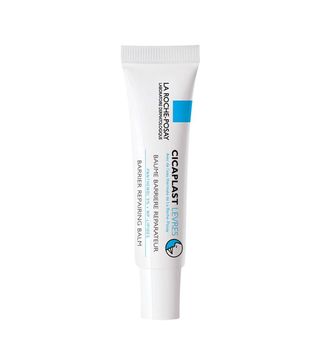
This is, without a doubt, the most impressive balm in my collection. It leaves lips feeling soft without any greasiness and is the closest thing to a miracle product I have found.
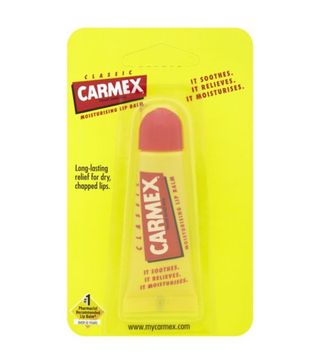
It's an oldie but a goodie. A tube of this in the handbag is all you need to keep lips happy.
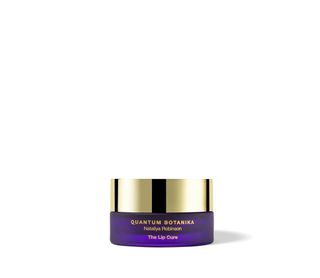
I keep a pot of this stuff on my bedside table. It has flecks of gold in it and is impossibly luxe.
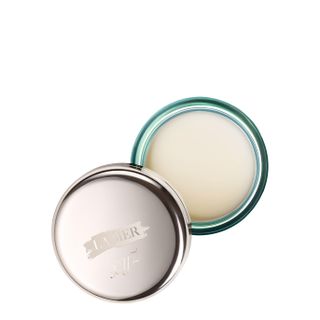
For those who take their lipcare seriously, look no further than La Mer's cult moisturising balm. It might cost an arm and a leg, but the results are magnificent.
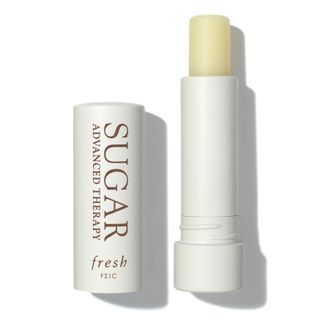
With a whole bunch of oils and waxes, this handy stick is a nourishing treat.
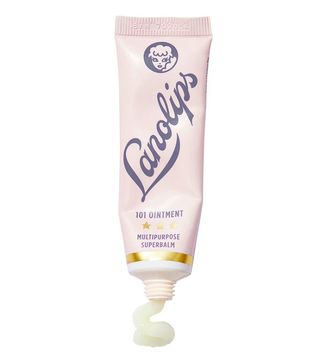
Rosie Huntington-Whiteley is a big fan of this super-sumptuous balm, and that says it all really, doesn't it?
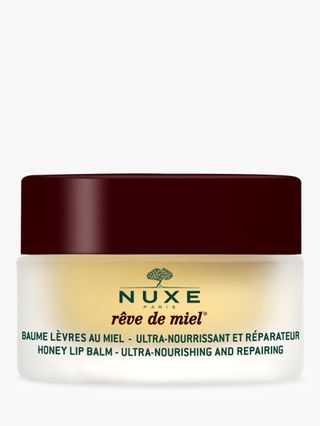
A beauty editor favourite, Nuxe's Reve de Miel is hydrating, soothing, and wonderfully calming.

If you like your lip balms to be fun and enjoyable to use, this cute pot from independent brand Neighbourhood Botanicals means business.
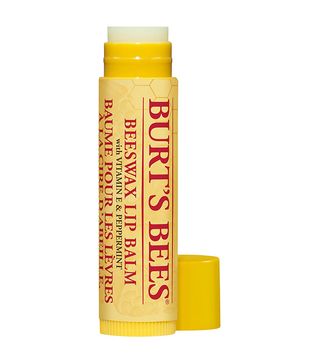
This classic balm utilises the nourishing powers of beeswax to soften, soothe, and protect troubled lips.
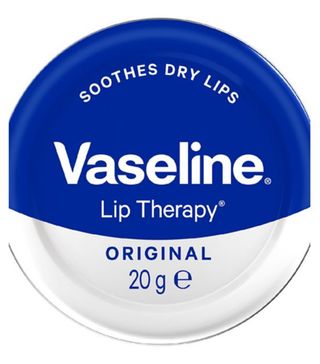
In recent years, Vaseline (or petroleum jelly) has acquired a bad reputation when it comes to lipcare. However, most dermatologists still recommend it as one of the most effective protectors around.
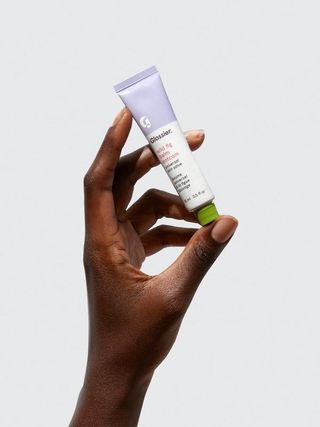
This new balm from Glossier leaves lips feeling comforted and soft, and it smells like delicious fig.
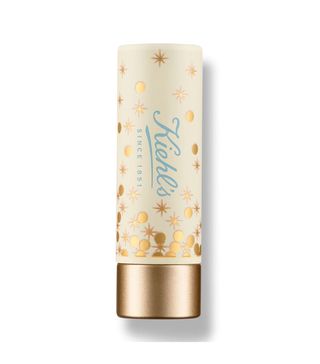
Few things make me happier than a festive, limited-edition beauty product, and this lip balm is one of my all-time faves.
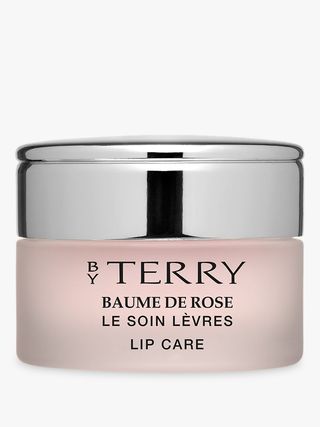
It's pricey, I know, but this lip balm is, without question, one of the silkiest, softening, and downright most wonderful ones out there.
Shannon Lawlor is a renowned beauty journalist and has contributed to Who What Wear’s beauty content since 2020. As a leading beauty editor, expert and brand consultant, she has over eight years of experience working for some of the industry’s most esteemed titles, including Who What Wear (of course), Glamour UK, Stylist, Refinery29 and Fabulous. Having also worked behind the scenes with some of the industry’s biggest brands and retailers, Shannon has a unique insight into what people really want from their beauty routines. Understanding that beauty lovers seek honest, open and responsible advice, she has it made her mission to demystify the intimidating world of beauty, taking a no-frills approach to the most relatable topics. While Shannon is the first to admit she doesn’t hold the answer to every beauty question out there, she is dedicated to sharing her expert insights in a bid to help. As a self-proclaimed lazy girl, Shannon has an affinity for easy-to-use, foolproof beauty products and has made it her mission to scope out the best of the best. When she’s not working, Shannon is likely soaking in the bath or giving no-holds-barred beauty reviews on Instagram from her bathroom floor.
